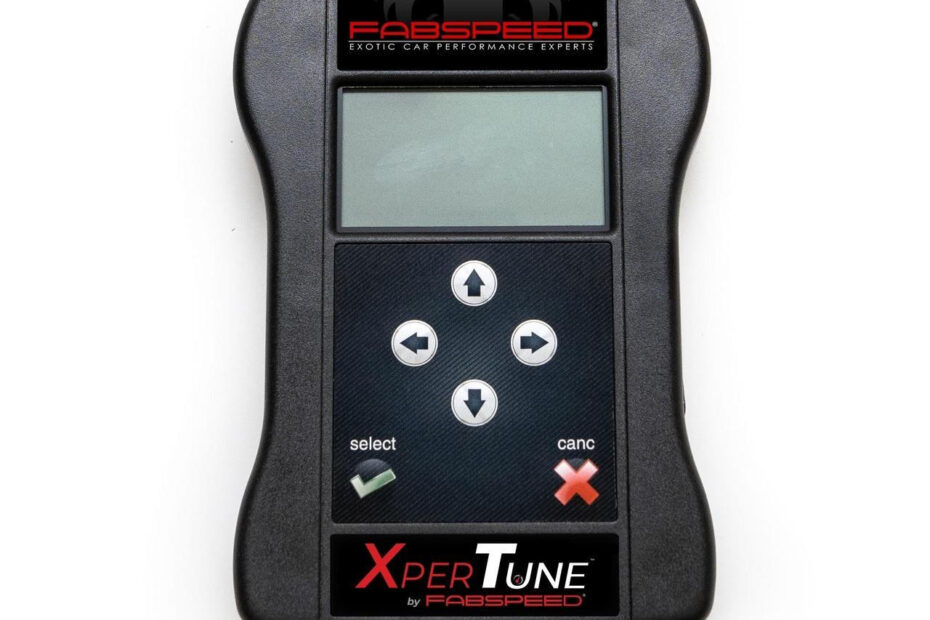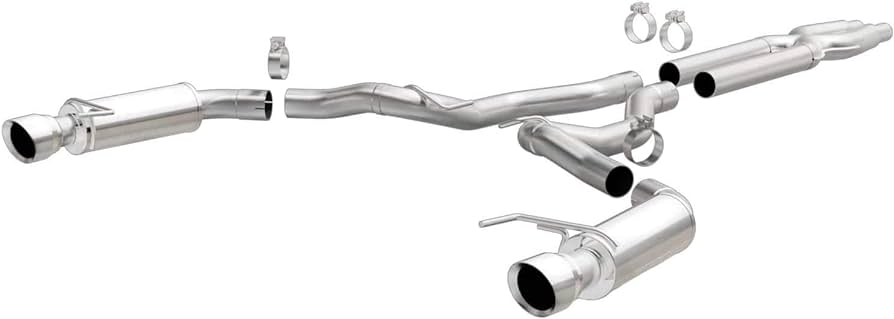Ecu tuning is the process of optimizing engine control for improved performance and efficiency. It involves adjusting the settings of the electronic control unit (ECU) to enhance various parameters such as ignition timing, fuel delivery, and turbo boost.
ECU tuning can unlock the full potential of your vehicle and deliver noticeable gains in horsepower, torque, and fuel economy. The process is often performed by specialized tuners using advanced software and diagnostic tools. Whether you want to maximize the power output of your car, optimize fuel consumption, or improve overall drivability, ECU tuning provides a cost-effective and straightforward solution.
By fine-tuning your ECU, you can achieve a more enjoyable and responsive driving experience.
What Is Ecu Tuning And How Does It Work?
One of the key factors in optimizing engine control is ECU tuning. ECU stands for Engine Control Unit, which is a computerized control system that manages various aspects of engine performance. ECU tuning involves modifying the stock software of the ECU to enhance engine performance, power, and efficiency. This process allows for fine-tuning of crucial parameters such as fuel-to-air ratio, timing, and boost levels. In this section, we will delve into the definition of ECU, the purpose of ECU tuning, and the step-by-step process involved in reading and modifying the stock ECU software.
Definition Of Ecu (engine Control Unit)
The Engine Control Unit, or ECU, is the brain of a vehicle’s engine management system. It is a powerful computer that receives inputs from various sensors and controls the engine’s vital functions, such as fuel injection, ignition timing, and turbocharging. The ECU processes this data and sends output signals to control the engine components, ensuring smooth and optimal performance.
Purpose Of Ecu Tuning
The primary purpose of ECU tuning is to maximize engine performance by optimizing various parameters. Stock ECUs come with conservative settings to account for different environmental conditions, fuel qualities, and emissions regulations. However, these settings often leave room for improvement, and ECU tuning allows enthusiasts and professional tuners to unlock the engine’s true potential. By adjusting critical parameters like fuel-to-air ratio, timing, and boost levels, ECU tuning can enhance horsepower, torque, throttle response, and overall engine efficiency.
The Process Of Ecu Tuning
The process of ECU tuning typically involves several steps to ensure accurate modifications and safe operation. The first step is reading the stock ECU software, which involves connecting specialized diagnostic tools to the vehicle’s OBD-II port. These tools extract the existing software from the ECU, allowing for analysis and modification.
Next, the tuners assess the stock ECU software and identify areas where improvements can be made. This can include adjusting fuel mapping, ignition timing, and turbocharger boost levels to deliver an optimal balance of power and reliability. Tuners use specialized software and hardware tools to make these modifications, ensuring precise adjustments.
Once the necessary changes are made, the modified software is uploaded back into the ECU. This process ensures that the ECU now operates with the new parameters, unleashing the engine’s enhanced performance. It is crucial to ensure proper uploading and verification of the modified software to prevent any potential issues or errors that could impact engine performance or reliability.
In summary, ECU tuning is a process that involves modifying the stock ECU software to optimize engine control and performance. By adjusting parameters such as fuel-to-air ratio, timing, and boost levels, enthusiasts and tuners can unleash the full potential of their engines. The process includes reading and modifying the stock software, as well as uploading the modified software back into the ECU. Proper tuning can result in noticeable improvements in horsepower, torque, and overall engine efficiency, enhancing the driving experience for automotive enthusiasts.

Credit: www.racechip.us
Benefits Of Ecu Tuning For Improved Performance
ECU tuning, also known as engine control unit tuning, is a popular technique used by automotive enthusiasts and professionals to optimize the performance of an engine. By making precise adjustments to the software that controls various aspects of the engine, ECU tuning can provide a wide range of benefits that boost overall performance. In this article, we will explore the key advantages of ECU tuning for improved performance. Whether you’re a speed enthusiast craving more power or someone looking to enhance your driving experience, ECU tuning can offer significant benefits.
Increased Horsepower And Torque
One of the primary benefits of ECU tuning is the ability to increase horsepower and torque in your vehicle. The engine control unit is responsible for managing the air-fuel mixture, ignition timing, and other crucial parameters that impact engine power. Through careful recalibration, ECU tuning can optimize these settings to deliver more power. Increased horsepower and torque result in faster acceleration, enabling you to enjoy a thrilling and high-performance driving experience.
Enhancements In Throttle Response
ECU tuning can also significantly improve the throttle response of your vehicle. Throttle response refers to the time it takes for the engine to respond to your inputs on the accelerator pedal. With optimized ECU tuning, the delay in throttle response can be minimized, resulting in a more instantaneous and reactive acceleration. This not only enhances the overall driving experience but also allows for better control and maneuverability in various driving conditions.
Improved Fuel Efficiency
Contrary to common belief, ECU tuning can actually improve fuel efficiency when done properly. By optimizing the air-fuel mixture and other engine parameters, the engine can achieve a more efficient combustion process. This means that you can maximize the power output from each drop of fuel, resulting in improved fuel efficiency. With ECU tuning, you can experience increased performance without sacrificing fuel economy, ultimately saving you money at the pump.
Optimized Engine Timing
In addition to horsepower and torque improvements, ECU tuning also allows for precise optimization of engine timing. Engine timing refers to the synchronization of the internal combustion process, including ignition timing and valve timing. By fine-tuning these timings, ECU tuning can optimize engine performance at different RPM ranges, resulting in smoother power delivery and improved overall engine response. This ensures that the engine operates at its best across various driving conditions, from low-speed city driving to high-speed highway cruising.
Enhanced Drivability And Smoother Power Delivery
ECU tuning can greatly enhance the drivability of your vehicle by improving power delivery. With optimized engine control, you’ll experience smoother acceleration and power delivery throughout the RPM range. This means no more jerky or uneven power delivery, making your driving experience more comfortable and enjoyable. Additionally, ECU tuning can also help eliminate flat spots, where the engine may experience a lack of power at certain RPM ranges, resulting in a seamless and consistent power delivery.
Overall, ECU tuning offers a wide range of benefits for improved performance. From increased horsepower and torque to enhanced throttle response, improved fuel efficiency, optimized engine timing, and enhanced drivability, ECU tuning can transform your vehicle into a high-performance machine. So, whether you’re looking to unleash the full potential of your car or simply enhance your driving experience, consider ECU tuning as a reliable and effective solution.
Factors To Consider Before Ecu Tuning
Before tuning your ECU for optimal engine control, consider factors like your vehicle’s warranty, compatibility with aftermarket parts, and the expertise of the tuner. Adequate research and consultation ensure a smooth and effective tuning process for your engine.
Factors to Consider Before ECU Tuning Before you embark on the journey of ECU tuning, it is essential to consider a few factors that will help optimize your engine control effectively. By paying attention to these key aspects, you can ensure a successful and satisfactory tuning experience. In this section, we will explore the factors to consider before ECU tuning, including researching reputable ECU tuning companies or professionals, understanding the warranty implications of ECU tuning, assessing the overall health of your vehicle before modifications, and determining specific performance goals and preferences.Researching Reputable Ecu Tuning Companies Or Professionals
One of the most critical aspects to consider before ECU tuning is finding a reputable company or professional to handle the process. As ECU tuning involves making changes to the engine control unit, it requires expertise and experience to ensure proper optimization and avoid any potential risks. When researching ECU tuning companies or professionals, consider looking for the following:- Experience: Look for professionals or companies with a proven track record and extensive experience in ECU tuning. Check their portfolios, reviews, and customer testimonials to gain insights into their expertise and customer satisfaction levels.
- Credentials: Ensure that the professionals or companies you consider have the necessary certifications and qualifications in automotive engineering or ECU tuning. This will give you confidence in their knowledge and skills.
- Technology and Equipment: ECU tuning requires advanced technology and equipment. Research whether the professionals or companies utilize the latest tools and software for optimal results.
- Support and Customer Service: A reputable ECU tuning provider should offer reliable customer support and assistance. Look for companies or professionals who are responsive to inquiries and provide ongoing support after the tuning process.
Understanding The Warranty Implications Of Ecu Tuning
ECU tuning can have implications on your vehicle’s warranty, and it is crucial to understand these implications before proceeding. Many vehicle manufacturers consider ECU tuning a modification that can void the warranty. However, some reputable tuning companies offer warranty-friendly solutions. Consider the following points regarding warranty implications:- Manufacturer’s Warranty: Review your vehicle’s warranty documentation to understand the specific terms and conditions related to modifications and tuning. Pay attention to any clauses that may void the warranty.
- Aftermarket Warranty: If your vehicle is still under warranty, explore aftermarket warranty options that cover modified vehicles. Some warranty providers offer coverage specifically for tuned vehicles, ensuring you have peace of mind.
- Reputable Tuning Companies: Opting for a trusted and reputable tuning company can minimize the chances of warranty disputes. Look for companies that offer warranty-approved tuning solutions or have a good track record of working with manufacturers without voiding warranties.
Assessing The Overall Health Of Your Vehicle Before Modifications
Before making any modifications to your vehicle’s ECU, it is essential to assess its overall health. A vehicle in good condition is more likely to benefit from ECU tuning without experiencing any adverse effects. Consider the following aspects when evaluating your vehicle’s health:- Maintenance: Ensure that your vehicle is up-to-date with routine maintenance, such as oil changes, filter replacements, and inspections. Fix any existing mechanical or electrical issues before proceeding with ECU tuning.
- Diagnostic Check: Conduct a comprehensive diagnostic check to identify any underlying issues or error codes stored in the ECU. Addressing these issues beforehand can prevent potential complications during tuning.
- Engine and Components: Inspect the engine and its components for signs of wear and tear. Check for leaks, corrosion, and any other visible issues that might affect the tuning process or overall performance.
Determining The Specific Performance Goals And Preferences
As each vehicle owner may have different goals and preferences, it is crucial to determine your specific performance goals before opting for ECU tuning. Clearly defining what you expect from the tuning process can help the tuning professionals customize the settings accordingly. Consider the following points when determining your performance goals and preferences:- Power and Torque: Are you looking for increased power and torque for improved performance? Specify the desired power output and torque gains to ensure the tuning achieves your expectations.
- Fuel Efficiency: If fuel efficiency is a priority for you, communicate this to the tuning professionals. They can optimize the engine control settings to enhance fuel efficiency without compromising performance.
- Driving Preferences: Do you prefer a more aggressive driving experience? Or are you looking for smoother and more refined performance? Clearly expressing your driving preferences will help the tuning process cater to your specific needs.
The Risks And Limitations Of Ecu Tuning
ECU tuning, also known as engine control unit tuning, is a popular method for optimizing engine performance and improving overall driving experience. However, like any modification to your vehicle, ECU tuning comes with its own set of risks and limitations that should be taken into consideration.
Potential Impact On Vehicle Emissions And Legality Concerns
One of the primary concerns associated with ECU tuning is its potential impact on vehicle emissions and the legality of the modifications. Altering the engine control parameters can result in changes to the air-fuel ratio, ignition timing, and other critical factors that can affect emissions. This can potentially lead to increased pollution output, which may result in your vehicle failing emission tests or even breaching legal standards.
Risks Of Over-tuning And Engine Damage
While ECU tuning can offer significant performance enhancements, it’s important to understand the risks associated with over-tuning. Over-tuning refers to pushing your engine beyond its safe limits, which can result in excessive stress on engine components and potential damage. This can lead to premature wear and tear, increased likelihood of engine failure, and costly repairs.
It is crucial to work with a reputable and knowledgeable tuner who understands the limits of your engine and can provide you with a customized tuning solution that balances performance gains with the longevity and reliability of your engine. It’s always better to opt for incremental performance improvements rather than pushing the engine to its breaking point.
Manufacturer Software Updates And The Need For Re-tuning
Manufacturers often release software updates for the engine control unit to address various issues, improve performance, and enhance safety features. If you have your ECU tuned, these software updates can potentially overwrite the changes made by the tuner, reverting your vehicle back to its stock settings. This means that you may need to re-tune your ECU after a manufacturer software update to maintain the performance modifications you desire.
Limitations Of Ecu Tuning On Naturally Aspirated Vs. Forced Induction Engines
The type of engine, whether naturally aspirated or forced induction, can significantly impact the extent to which ECU tuning can maximize performance gains. Naturally aspirated engines typically have fewer opportunities for performance improvements through tuning compared to forced induction engines. Forced induction engines, such as those with turbochargers or superchargers, benefit more from ECU tuning as there are greater possibilities for increasing boost pressures, adjusting fuel delivery, and optimizing timing.
It’s important to consult with a professional tuner who is experienced with your specific engine configuration to understand the limitations and potential gains that can be achieved through ECU tuning.
Professional Ecu Tuning Vs. Diy Options
When it comes to optimizing engine control, electronic control unit (ECU) tuning is an essential technique that allows vehicle owners to fine-tune their engine performance. ECU tuning, also known as remapping, involves modifying the settings within the ECU to optimize power, torque, fuel efficiency, and more. As a vehicle owner, understanding the benefits of professional tuning services versus DIY options is crucial in making an informed decision. In this article, we will explore the advantages of professional ECU tuning services, weigh the costs and skill requirements of DIY tuning options, and evaluate the range of tuning software and tools available for DIY enthusiasts.
Understanding The Benefits Of Professional Tuning Services
Professional ECU tuning services offer numerous benefits that can significantly enhance your vehicle’s performance. These benefits include:
- Precision and Expertise: Professional tuners have extensive knowledge and experience in ECU tuning, ensuring exceptional results. They understand the intricacies of different vehicle systems and can fine-tune your engine for optimal performance.
- Customization: A professional tuner can tailor the ECU map to your specific requirements and driving style. Whether you desire increased power, improved fuel efficiency, or enhanced throttle response, a professional tuner can deliver the desired changes with precision.
- Advanced Diagnostic Capabilities: Professional tuners have access to advanced diagnostic tools and equipment, allowing them to identify potential issues or malfunctions in your vehicle’s engine. This enables them to rectify any problems and optimize your engine’s performance to its fullest potential.
- Warranty Protection: Reputable tuning companies often offer warranty protection, ensuring that your vehicle remains covered even after modifications have been made. This adds an extra layer of confidence and peace of mind.
Weighing The Costs And Skill Requirements Of Diy Tuning Options
DIY tuning options, while appealing to some, come with their own set of considerations and challenges. Before deciding on a DIY approach, it’s important to weigh the costs and skill requirements involved:
- Investment: DIY tuning typically requires a significant investment in specialized equipment, such as a tuning interface and software. These tools can be expensive, especially for those who plan on tuning their vehicles only once.
- Technical Knowledge: ECU tuning demands an in-depth understanding of the vehicle’s engine control systems, as well as the ability to interpret data and make appropriate adjustments. DIY tuners must possess a high level of technical knowledge to avoid causing damage to their vehicle.
- Risk of Error: Without the expertise of a professional tuner, there is a higher risk of making mistakes during the tuning process. Incorrect modifications can lead to engine damage, poor performance, or even a complete breakdown of the vehicle.
- Lack of Support: Unlike professional tuning services, DIY options often lack the technical support needed to overcome challenges or resolve issues that may arise during the tuning process. This can leave vehicle owners feeling overwhelmed or incapable of achieving desired results.
Evaluating The Range Of Tuning Software And Tools Available For Diy Enthusiasts
For DIY enthusiasts, a range of tuning software and tools is available to facilitate the tuning process. These options cater to different levels of expertise and vehicle models. It is important to evaluate the available software and tools to ensure they meet your specific needs:
- Software Compatibility: Check the compatibility of tuning software with your vehicle’s make and model. Ensure that it supports the necessary protocols and features required for successful tuning.
- User-Friendliness: Consider the user-friendliness of the software interface. Look for options that provide clear instructions, easy navigation, and intuitive features to simplify the tuning process.
- Data Logging and Analysis: Efficient tuning involves accurate data logging and analysis. Look for software that offers robust data logging capabilities and the ability to interpret data for making informed adjustments.
- Community Support: Joining a dedicated online community of DIY tuners can be immensely helpful. These communities often provide resources, tutorials, and a platform for sharing experiences and troubleshooting.
Ultimately, the decision between professional ECU tuning services and DIY options depends on factors such as budget, technical proficiency, and desired level of customization. By understanding the benefits of professional tuning services, weighing the costs and skill requirements of DIY options, and evaluating available tuning software and tools, vehicle owners can make an informed choice that best suits their needs and preferences.
Frequently Asked Questions On Optimizing Engine Control: Ecu Tuning
Does Ecu Tuning Really Work?
Yes, ECU tuning really works. It optimizes your vehicle’s performance by adjusting the engine’s computer settings, resulting in improved horsepower, torque, and fuel efficiency. ECU tuning is a popular method for enhancing engine performance and can be done by professionals in specialized shops or through aftermarket tuning software.
What Does A Tcu Tune Do?
A TCU tune optimizes the performance of your vehicle’s transmission control unit. It improves shift points, gear shifting speed, and overall driving experience.
Does Ecu Tuning Make Your Car Faster?
ECU tuning can make your car faster by optimizing the engine’s performance. It adjusts fuel and ignition settings for improved power and responsiveness. However, results may vary depending on the vehicle’s condition and modifications.
How Much Hp Does A Ecu Tune Add?
ECU tuning can increase horsepower significantly, with gains ranging from 10 to 40 horsepower. However, the exact increase varies depending on the specific vehicle and modifications made. Overall, ECU tuning is an effective way to boost horsepower and performance.
Conclusion
ECU tuning is an essential aspect of optimizing engine control, allowing for enhanced performance and efficiency. By customizing the engine’s electronic control unit, car enthusiasts and professionals can unlock the full potential of their vehicles. From increased horsepower to improved fuel economy, ECU tuning offers a range of benefits.
However, it is crucial to approach ECU tuning with caution and work with experienced professionals to ensure safety and reliability. Embrace the power of ECU tuning and take your driving experience to the next level.



